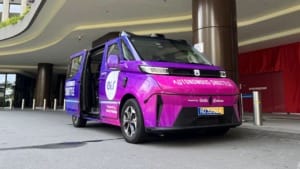Huawei to launch a homegrown operating system, challenging Apple’s iOS and Android
Huawei will debut its home-grown HarmonyOS Next, challenging Apple's iOS and Google's Android and driving China's mobile ecosystem.

Huawei Technologies is preparing to launch its highly anticipated mobile operating system, HarmonyOS Next, on Tuesday. This new system is being promoted as an alternative to Apple’s iOS and Google’s Android as Huawei works to establish a Chinese mobile ecosystem in response to ongoing US sanctions.
On Tuesday, HarmonyOS Next will be available on several Huawei devices, including the Mate 60 series, the foldable Mate X5 smartphone, and the 13.2-inch MatePad Pro tablet. Huawei presents this system as an entirely independent creation that is no longer compatible with Android-based applications. It has been called the “pure blood” version of HarmonyOS in China.
HarmonyOS Next: A new chapter for mobile platforms
HarmonyOS Next, available to developers in China since January, is seen by Huawei as a fresh start. Richard Yu Chengdong, chairman of Huawei’s consumer business group, referred to it as “a new life striving to grow” during an event held in Shanghai last month. Yu highlighted how the company compressed a decade of foreign operating system development into one year.
In preparation for the launch, Huawei has been rallying Chinese app developers to back the new operating system. Last month, the company hosted what it referred to as an “oath-taking ceremony” to mobilise support, as detailed in a blog post from September 26 on Huawei’s website. Many prominent Chinese tech companies attended the event, including Baidu, JD.com, Meituan, and Tencent. Huawei also noted that over 10,000 applications and services have been developed specifically for HarmonyOS Next.
Huawei’s deputy chairman, Eric Xu Zhijun, stated at the event that the company can only truly succeed with its ecosystem. He hoped governments, businesses, and institutions would develop native HarmonyOS versions for their applications.
Huawei’s operating system journey amid US sanctions
HarmonyOS was initially launched in August 2019 as an alternative to Android, following the US government’s decision to add Huawei to a trade blacklist. This move prevented the Shenzhen-based company from purchasing US-originated technologies without approval from Washington. Since then, Huawei has been working to build its mobile platform, with HarmonyOS gaining momentum last year, driven by the release of Huawei’s Mate 60 series smartphones, which marked the company’s return to the 5G handset market.
In the first quarter of this year, HarmonyOS achieved a 17% market share in China’s smartphone market, according to a report by Counterpoint in June. This marked a doubling of its share compared to the same period last year, allowing it to overtake Apple’s iOS as China’s second-largest mobile operating system. While Android continued to dominate with a 68% market share, iOS dropped slightly to 16%.
The upcoming release of HarmonyOS Next comes just days after Meng Wanzhou, the daughter of Huawei’s founder and chief executive Ren Zhengfei, returned to a leadership role as part of the company’s rotating chair system. The 52-year-old Meng, also Huawei’s chief financial officer, will oversee the launch of Huawei’s next 5G flagship series, the Mate 70, which is expected to be released later this year.













